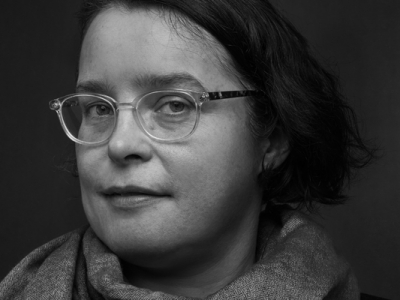By Karen Kelly
According to Statistics Canada, an estimated 23% percent of Canadians surveyed are unwilling or hesitant to take the COVID-19 vaccine. All kinds of assumptions have been made about them: they’ve been called ignorant, stupid, selfish, and much more.
But who are they? And what do they have in common with each other?
 Those questions have prompted Professor Michael Christensen and his colleagues to delve into the world of anti-vaccination Twitter discussions. They want to know: ‘When someone shares a post on social media questioning the efficacy and safety of a COVID-19 vaccine, what message is that person sending to the world?’
Those questions have prompted Professor Michael Christensen and his colleagues to delve into the world of anti-vaccination Twitter discussions. They want to know: ‘When someone shares a post on social media questioning the efficacy and safety of a COVID-19 vaccine, what message is that person sending to the world?’
“What people say about vaccines reveals a lot about who they are in terms of religion, community, politics, health and more,” says Christensen, a professor of Law and Legal Studies. “People are very connected to their communities and their families. Misinformation often feels true because it speaks to social anxieties or seems more consistent with their political identities.”
For instance, there are people who are opposed to the vaccines with a deep distrust of government, of doctors, or of pharmaceutical companies. Others consume only “natural” food and medications.
Christensen says the general assumption is that “anti-vaxxers” are on the conservative end of the political spectrum, but that’s not always the case.
“Actually, there are long traditions of politics on the right and on the left that are suspicious of mainstream sources of news and government,” he says. “There has been a lot of reporting lately on how other rightwing messages are resonating with anarcho-left communities.”
With support from the Social Sciences and Humanities Research Council (SSHRC), Christensen is collaborating with colleagues in Carleton’s School of Computer Science and School of Journalism and Communication to analyze and categorize thousands of social media posts on Twitter. They are logging hashtags and reply chains on the platform that isolate certain forms of vaccine misinformation and connect it to other messaging: health misinformation; partisan politics; religious beliefs; and conspiracy theories. All of this data will help them create a “cultural typology of vaccine misinformation.”
“So far, we have found lots of mixing of ideas among different groups with no neat boundaries,” he says. “It’s always dynamic and it’s different in Canada than in other countries, such as Germany. We’re looking for the underlying foundational social relations between these groups.”
Beyond the Facts
Once Christensen has identified the many different variations of anti-vaccination communities, he hopes to recommend ways that public health officials can more effectively reach them. One of his first recommendations may be: the facts aren’t enough.
“I don’t think fact-checking is necessarily bad, but building an entire strategy around it is pretty limited.” he says. “It assumes there’s the right information and the wrong information and it paints people who are willing to engage the wrong information with a pretty broad brush…These people are not simply uninformed; they are adhering to their worldview.”
He also questions the effectiveness of removing all anti-vaccination misinformation from social media.
“The impulse is to erase the bad information, especially after the electoral surprises of 2016 with Brexit and Donald Trump’s election,” he says. “But the law is a very blunt instrument. Some countries have amended their criminal codes, making misinformation a criminal matter. Western democracies have gone more towards…regulating social media companies in general.”
As someone who studies the intersection of technology and democracy, he takes this question a step further: what is best for a democracy?
“We want to get away from the bad information-good information dichotomy,” says Christensen. “We want dissenting voices in our society,” and if we ignore the complex social realities expressed by misinformation and take a heavy-handed approach to restricting speech, then we are “not that different than countries run by autocrats or dictators.”
Monday, October 18, 2021 in Another Take, Department of Law and Legal Studies
Share: Twitter, Facebook



